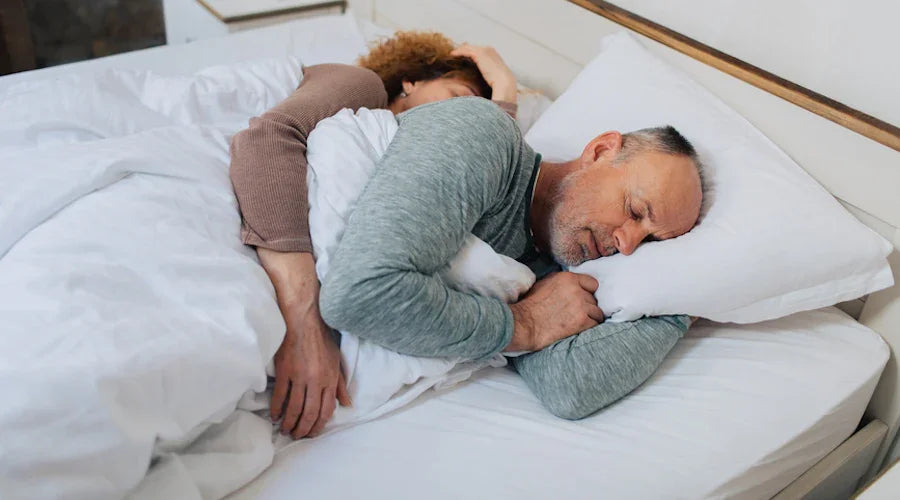LIVING WITH INCONTINENCE
Incontinence exercise
Read more20% OFF WOMEN'S LINERS, PADS, PANTS & WASHABLE UNDERWEAR! PLUS, ENJOY FREE SHIPPING ON ALL ORDERS!

Around 25% of children regularly wet the bed, and while research determined that 1-2% of adults do the same, it’s thought that number is well under-reported. The likely reason is the embarrassment of being an adult with a condition associated with children who are expected to “grow out of it”.
If you suffer from adult bed wetting, don’t ignore it. The adverse effects can be significant.
There’s no need to allow this condition to have such a negative influence on your life. There are things you can do to improve, manage, and in some cases, even cure adult bed wetting.
Medically known as nocturnal enuresis, adult bed wetting is the involuntary release of urine while asleep – during the night or day. It’s different to nocturia, which is waking up frequently to go to the toilet.
While the term ‘adult’ in adult bed wetting technically describes sufferers aged 18 and over, it’s more likely to start after 60.
It’s important to know that the release of urine while asleep is not within the control of the individual. Nor is it the result of consuming too much fluid or not going to the toilet before bed. Although these things can make a difference, the cause is messages sent by the brain to the bladder to release urine while you’re asleep.
Several underlying issues could be the cause of urinating while you’re asleep.
While the list of causes is long, sometimes a specific cause for adult bed wetting isn’t found. More in-depth research into the condition has yet to be undertaken. While not finding a cause that can be treated can be discouraging, there are still very good ways to manage the issue and ensure you get back to having regular, uninterrupted sleep.
Identifying the underlying cause is key to resolving adult bed wetting. The first step is making an appointment with your doctor to investigate the medical causes listed above. This could involve a physical examination, testing a urine sample for infection, questions about symptoms, and reviewing current conditions and medications. You might also be referred for further tests or to a specialist.
Depending on the outcome, if a cause is identified and addressed, that may stop the bed wetting. For example, if you have a UTI, a course of antibiotics will cure the infection and fix the bed wetting.
If the issue is stress or anxiety, your doctor may refer you to a counsellor or phycologist.
In addition to medical treatment, lifestyle changes should improve the situation.
There are several reasons why management of adult bed wetting may be necessary.
In these instances, there are many benefits to using a TENA product.
For example, TENA Night Pants or TENA Pant range are suitable for all genders. They look and feel like regular underwear and offer complete security at night. Made with soft, stretchy, breathable material, they feature leak barriers and cope well with movement during sleep.
If you prefer, there are TENA Pants for Men and TENA Pants for Women and, while not all are specifically for night, they offer high absorbency and a snug fit for excellent protection.
TENA Pad Maxi Night for women have additional length as well as width at the front and back of the pad for extra coverage, no matter what your preferred sleeping position.
You might also appreciate the confidence of TENA Bed Underlays . These disposable mats provide an additional layer of absorbency, are soft and comfortable and can be discreetly placed in the bed. They’re ideal for total peace of mind if you’re staying away from home.
Head to the TENA Product Finder where answering a few questions will produce some product recommendations based on your situation. You can even order free samples to ensure you find your perfect product.
If you are experiencing adult bed wetting, make an appointment to see your doctor and know that there are many ways the problem can be fixed or managed.
Sources:
Asaleo Care makes no warranties or representations regarding the completeness or accuracy of the information. This information should be used only as a guide and should not be relied upon as a substitute for professional, medical or other health professional advice.